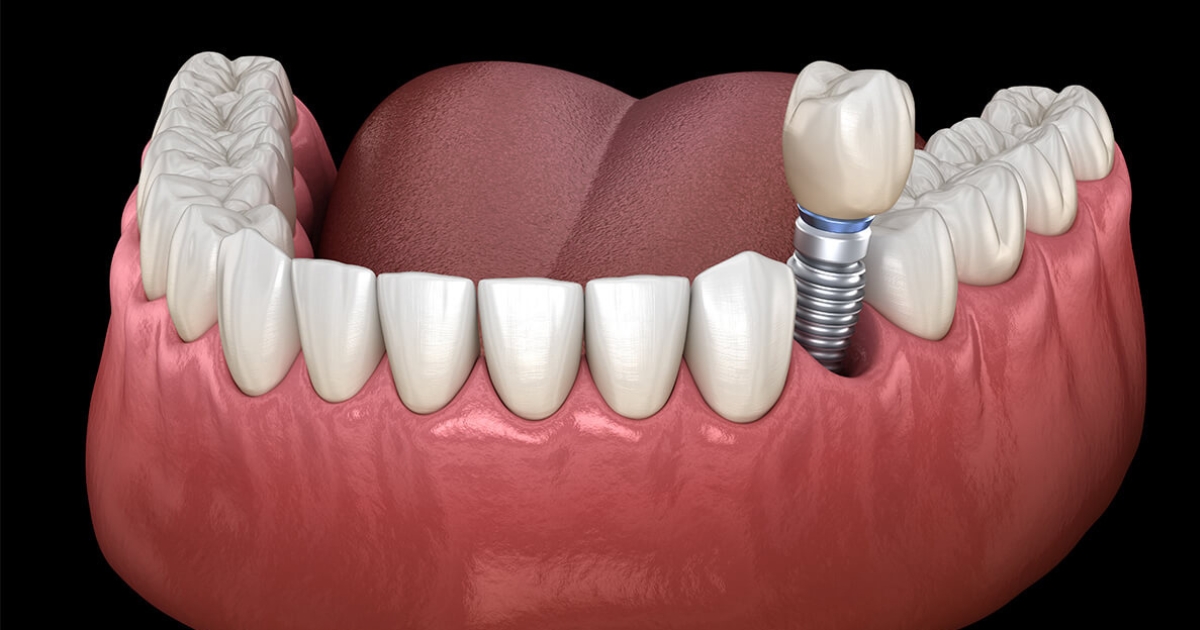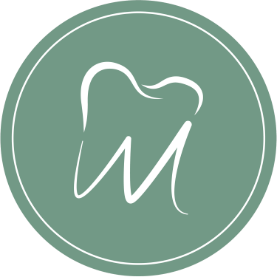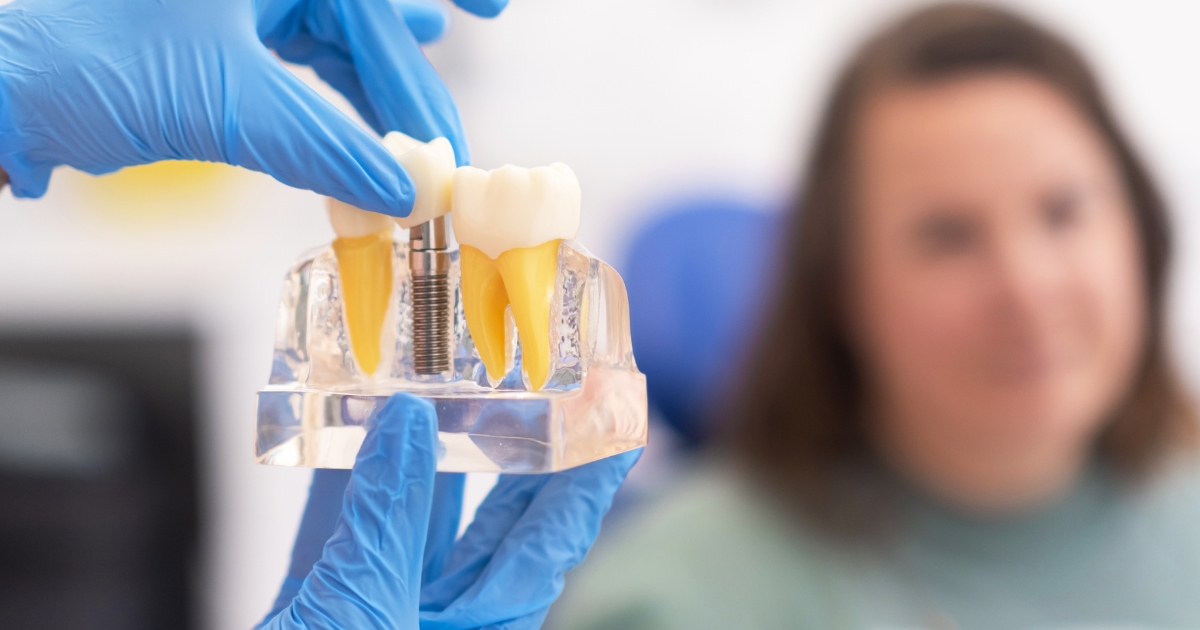
Dental implant surgery is a popular and effective way to replace missing teeth. While the procedure itself has become routine, knowing what happens afterward can help ease any concerns and prepare you for the recovery period. Understanding how your body heals and what you can do to support that healing will improve your experience and outcome.
Immediate Aftercare: The First 24 Hours
The initial day after dental implant surgery is vital for your healing process. It’s common to feel some pain, notice swelling, and see slight bleeding near the implant area. These are normal reactions as your body begins to heal.
Here’s what typically happens in the initial 24 hours:
- Bleeding: Slight bleeding or oozing is common. Using gauze pads to gently apply pressure can help stop it.
- Swelling: Your gums and surrounding tissues may swell. Applying an ice pack on your cheek intermittently can reduce this.
- Pain: Mild to moderate pain or soreness is expected. Over-the-counter pain relievers, recommended by your dentist, generally help ease discomfort.
- Diet: Stick to soft foods and avoid hot, spicy, or crunchy items to prevent irritation or damage.
Following these guidelines on the first day is key to avoiding complications and starting the healing process smoothly.
Managing Discomfort and Swelling
Swelling and soreness tend to peak 48 to 72 hours after surgery. This phase can be uncomfortable, but it signals your immune system is working to repair the tissues around the dental implant.
Tips to handle this period include:
- Cold compresses: Continue applying ice packs for 15-20 minutes every hour during the first two days.
- Rest: Take it easy and avoid strenuous activities that increase blood flow and swelling.
- Medication: Follow the prescribed medication schedule strictly, whether it’s painkillers or antibiotics.
- Avoid smoking and alcohol: Both can interfere with the healing process and raise the risk of infection.
If swelling or pain worsens instead of improving after 3 days, contact your dental care provider promptly.
Oral Hygiene: Keeping the Area Clean
Maintaining oral hygiene after dental implant surgery requires special care. Proper cleaning prevents infections and helps your gums heal properly around the implant.
Consider these hygiene practices:
- Gentle rinsing: Start rinsing your mouth gently with warm salt water 24 hours after surgery. Do this 3-4 times daily to reduce bacteria.
- Avoid brushing the implant site immediately: Use a soft toothbrush to clean other areas but avoid disturbing the implant area for the first few days.
- No mouthwash with alcohol: Alcohol-based rinses can irritate healing tissues. Stick to salt water or dentist-approved rinses.
- Floss carefully: When allowed by your dentist, floss gently to keep plaque away without disrupting healing.
Consistent but careful hygiene accelerates healing and lowers infection risks.
Eating and Drinking After Surgery
Food and drink choices impact your healing process. Eating properly nourishes your body and prevents strain on the surgical site.
Follow these dietary tips:
- Soft foods: Yogurt, mashed potatoes, smoothies, and soup work well during the early days.
- Avoid hard, crunchy, or sticky foods: Nuts, chips, and candies can damage the surgical area.
- Hydration: Drink plenty of water, but avoid straws as the suction can dislodge blood clots essential for healing.
- No smoking or alcohol: Both delay healing and increase infection chances.
Once your dentist clears you, gradually reintroduce regular foods while still being mindful of the implant site.
Healing Timeline: What Happens Next?
Healing after dental implant surgery unfolds in several phases over weeks to months:
First week: Swelling and discomfort gradually reduce. Soft tissue around the implant starts to heal.
Weeks 2-4: Gum tissues continue to strengthen. You may begin brushing near the implant carefully.
3-6 months: The implant fuses with your jawbone through a process called osseointegration, providing a strong foundation for the replacement tooth.
Final restoration: Once healing is complete, your dentist attaches the crown, bridge, or denture, restoring full function and appearance.
Patience is important because a successful implant relies on proper healing beneath the gums.
Signs That Need Attention
Although it’s common to experience some discomfort and swelling, specific symptoms may signal the need for immediate care:
- Severe pain or swelling: That worsens over time or spreads to the face and neck.
- Excessive bleeding: If bleeding continues beyond 24-48 hours despite pressure.
- Fever or chills: Possible signs of infection.
- Loose implant: Any feeling that the implant moves or feels unstable.
- Unusual discharge: Pus or foul smell from the surgical site.
If you notice any of these, contact your dental professional immediately for evaluation.
Tips to Speed Up Recovery
Taking extra steps can support your body and improve your recovery experience:
- Follow all instructions: Your dentist’s guidelines are based on years of experience.
- Eat nutrient-rich foods: Vitamins C and D, calcium, and protein help tissue repair.
- Get enough rest: Sleep promotes healing.
- Avoid strenuous activities: Heavy exercise or bending over increases blood pressure and can cause bleeding.
- Stay hydrated: Water flushes toxins and keeps tissues moist.
Small lifestyle adjustments can have a big impact on healing speed and comfort.
Dental implant surgery plays an important role toward restoring your smile and oral function. Being prepared for the recovery process makes the experience smoother and helps you get the most from your treatment. Remember, patience and good care lead to a lasting, successful dental implant.
If you want personalised advice or have concerns during recovery, always reach out to us. Your healing journey is unique, and professional guidance ensures the best outcome!


